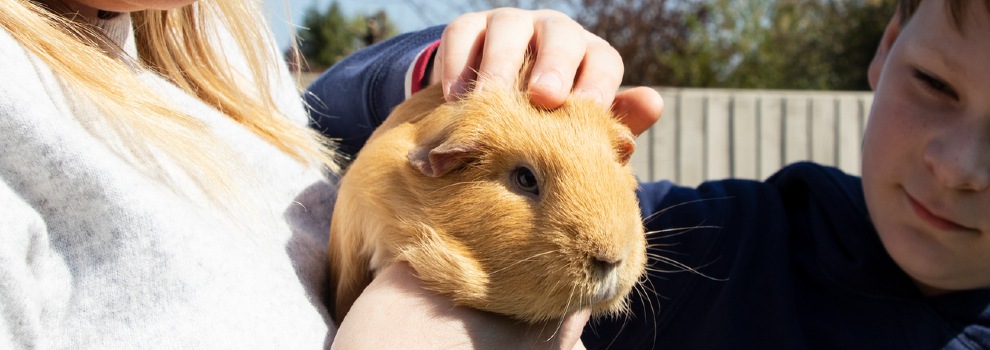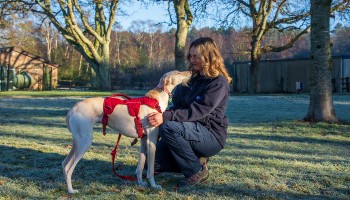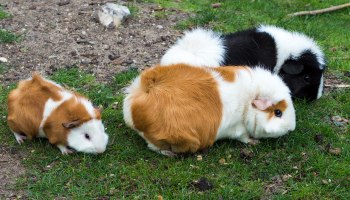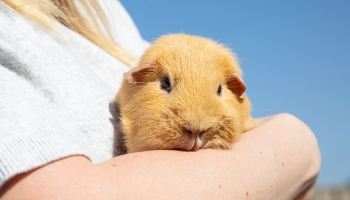- Find a Pet
- Advice and Welfare
- Ways to Give
- Get Involved
- What We Do
- Search
- My RSPCA
- Report a concern
- Sponsor
-
Colour modeVivid Calm
- Home
- Advice and welfare
- Pets
- Rodents
- Guinea pigs
- Behaviour
Guinea pig behaviour
Make sure your guinea pig stays happy and healthy, by giving them access to the things they need at all times - including space, food, water, safe hiding places, companion guinea pig(s) and toys. They're inquisitive animals, and without enough to do, they may get bored and suffer.

Here's what your guinea pig needs:
- Social time - guinea pigs are very social and need to interact with other friendly guinea pigs. Many also enjoy playing with people.
- They'll need regular opportunities to play with other friendly guinea pigs or people.
- Constant access to safe hiding places, such as pipes and shelters, where they can go when they want to be alone, hide or escape if they feel afraid. Guinea pigs are a prey species and must be able to hide in a secure place away from things that scare them. There should be enough places for all your guinea pigs to hide at the same time, and they must be away from the sight and smell of predators such as foxes, cats, dogs, ferrets and birds of prey.
- Exercise - guinea pigs are active animals during the day and night, and need to be able to exercise each day to stay fit and healthy.
- Tunnels - guinea pigs like to tunnel, so make sure they have suitable materials that allow tunnelling behaviour, such as pipes and deep areas of hay.
- Safe toys - to play with and chew.
- Kindness! - be quiet and gentle around your guinea pig and never shout at or punish them - they're very unlikely to understand and can become more nervous or scared.
If your guinea pig's behaviour changes
A guinea pig's behaviour depends on its age, personality and past experiences. As a guinea pig owner, you'll need to keep a close eye on your pet's behaviour. If it changes, it could be a sign your guinea pig is distressed, bored, ill or injured.
Signs a guinea pig may be suffering from stress or fear can include:
- Hiding most of the time
- Aggression
- Chewing their cage bars
- Over-grooming
- Changing their feeding or toileting habits
- Drinking too much or playing with the water bottle
- Sitting hunched
- Reluctance to move
- Repeatedly circling their enclosure.
If your guinea pig's behaviour becomes an ongoing problem, or they show signs of stress or fear, ask your vet or clinical animal behaviourist for advice.



